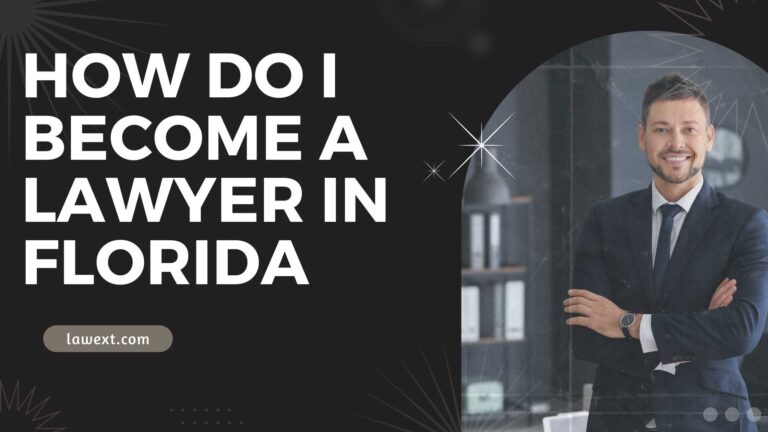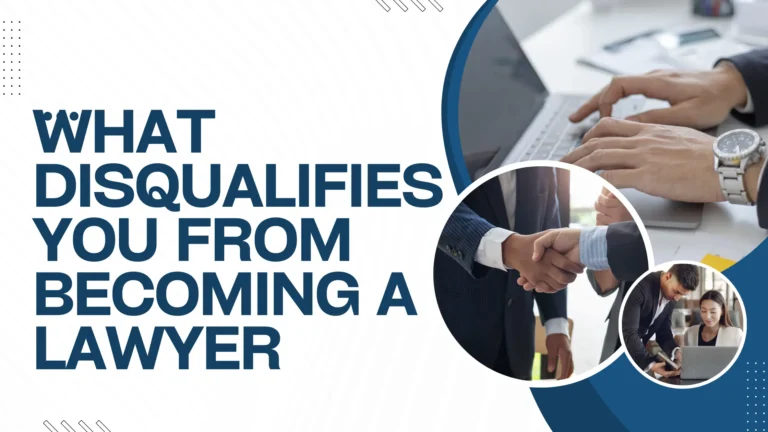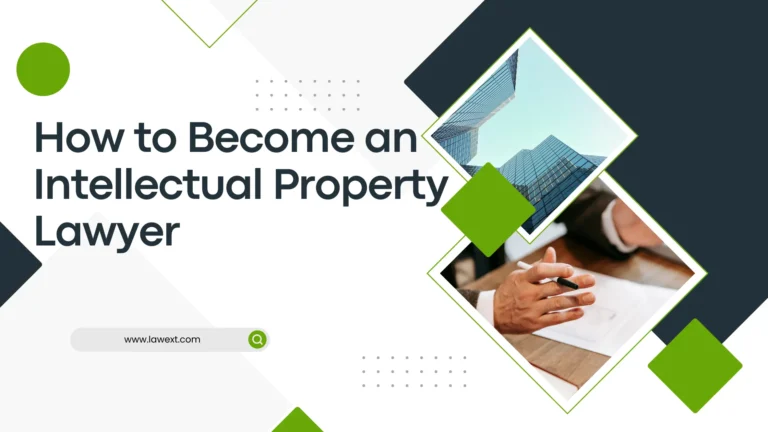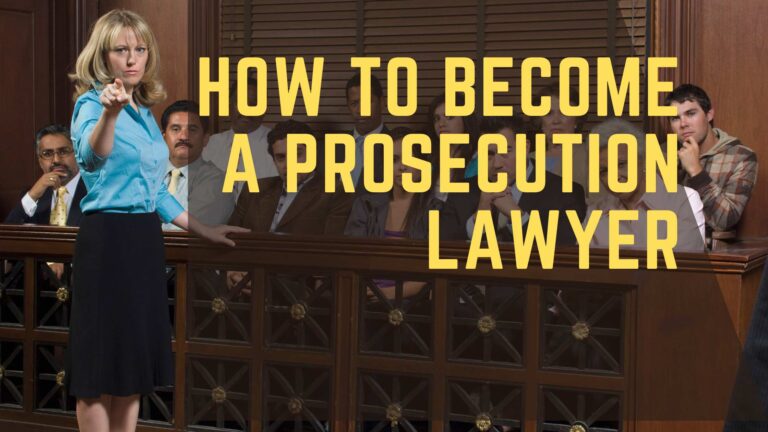How to Become a Special Education Lawyer?
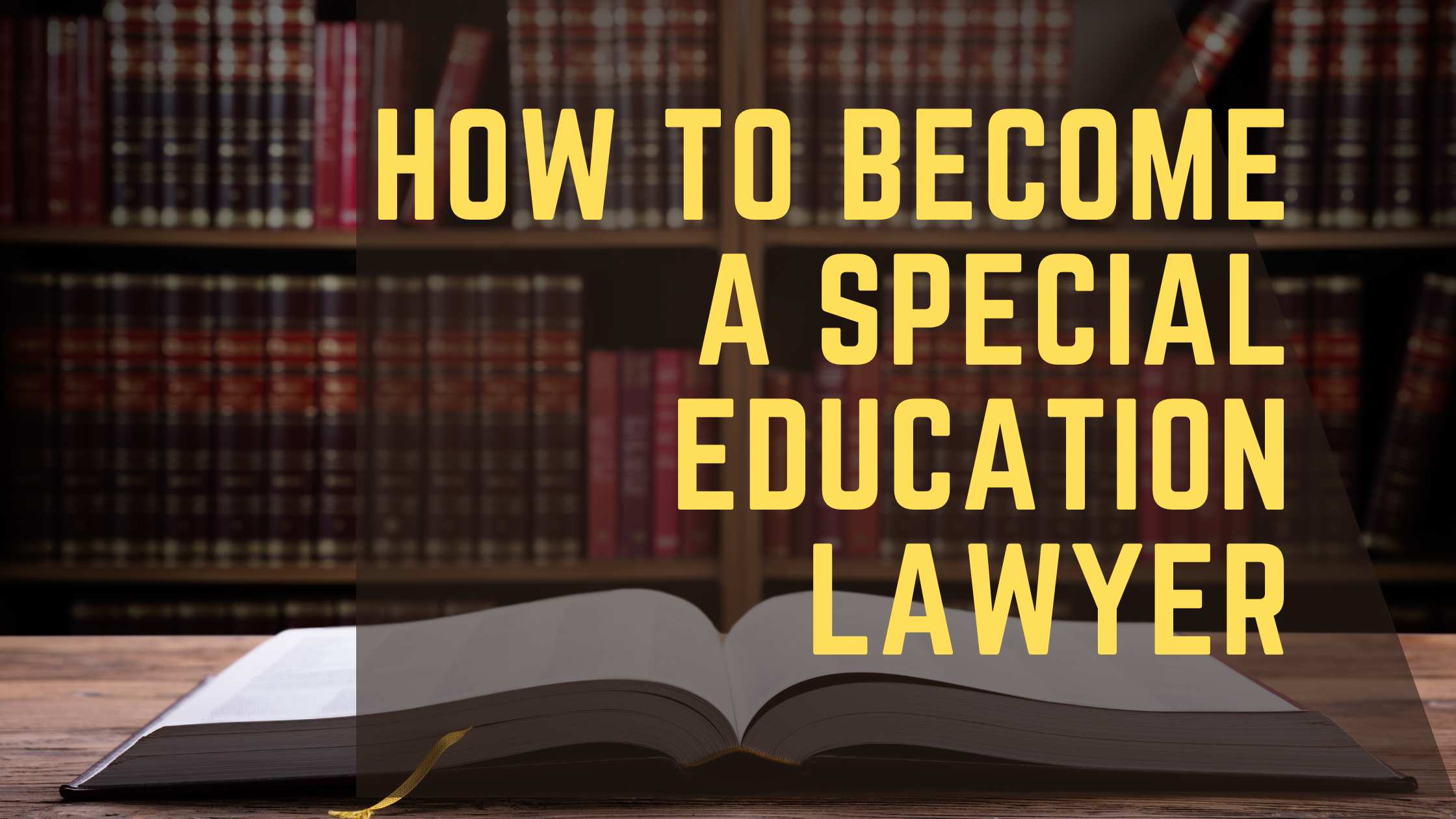
To become a special education lawyer, complete a law degree and gain expertise in special education law. Acquire a Juris Doctor (JD) degree and pass the bar exam to practice law in your jurisdiction.
How to Become a Special Education Lawyer? Special education lawyers are dedicated to advocating for the rights of students with disabilities. This legal specialty requires a deep understanding of both education and disability law. Those aspiring to this field must equip themselves with the necessary legal education, attain licensure, and continuously build their knowledge about state and federal education regulations.
By combining legal expertise with a passion for ensuring equal educational opportunities for all, a special education lawyer is poised to make a significant impact. As this profession bridges legal practice and social advocacy, it demands a commitment to ongoing learning and an understanding of the diverse challenges faced by individuals with disabilities in the educational system. With the right preparation and dedication, a career as a special education lawyer can be both rewarding and transformative.
The Role Of A Special Education Lawyer
A special education lawyer plays a pivotal role in ensuring that students with disabilities receive the appropriate education and support they are legally entitled to. These lawyers understand the complexities of education law. They help students and their families navigate the educational system.
Advocating For Students With Disabilities
Advocacy is at the heart of special education law. Lawyers in this field stand up for the rights of students. They ensure these students access the educational resources they need. Effective advocacy involves:
- Assessment reviews: Analyzing a student’s educational evaluations.
- IEP meetings: Attending and contributing to Individualized Education Program meetings.
- Legal guidance: Advising families on their rights and legal options.
They work to prevent discrimination and promote equality in education.
Navigating Education Law And Policy
Special education lawyers have to understand various laws and policies. These include the Individuals with Disabilities Education Act (IDEA) and Section 504 of the Rehabilitation Act. They must know how to use these laws to protect their clients. Part of their role involves:
- Interpreting state and federal laws that affect students with disabilities.
- Helping schools and parents comply with complex regulations.
- Resolving disputes between families and educational institutions.
They are also experts in conflict resolution, striving for solutions that serve the student’s best interests.

Credit: www.clio.com
Educational Pathways
An essential step to becoming a special education lawyer is the education pathway. This journey comprises specific stages, beginning with undergraduate education and progressing through law school. Candidates must make strategic decisions at each step. Read on to learn about these educational milestones and prepare for a fulfilling career advocating for the rights of individuals with special needs.
Undergraduate Degree Choices
Choosing the right undergraduate degree can set the foundation for a career in special education law. It’s crucial to consider majors that will provide a broad understanding of the issues facing individuals with disabilities. Strong background knowledge in these areas can be highly beneficial:
- Psychology: Provides insights into human behavior.
- Sociology: Offers a perspective on social interactions and institutions.
- Education: Builds knowledge on educational theories and systems.
- Political Science: Gives an understanding of legal frameworks and policies.
Selecting a major in one of these fields can help future lawyers understand the complex needs of their clients. Melding these insights with law training is a potent combination.
Law School Admission Requirements
Before setting foot into law school, candidates must meet specific admission requirements. Typically, these include:
- A bachelor’s degree from an accredited institution.
- A competitive score on the Law School Admission Test (LSAT).
- Strong letters of recommendation.
- Personal statements reflecting dedication to special education advocacy.
Evidence of commitment to special education, through volunteer work or relevant employment, can also bolster an application. These requirements help law schools select candidates ready to take on the rigors of legal education and the nuanced field of special education law.
Law School Journey
Embarking on a law school journey opens a path to advocating for those with unique needs as a special education lawyer. It combines rigorous academic study with practical experience, preparing future lawyers to navigate the complexities of special education law and to support the rights of children and families. The following areas of focus are critical for those aspiring to enter this rewarding field of law.
Key Courses And Specializations
To ensure a robust understanding of special education law, students must focus on key courses during their law school journey. These courses lay the foundation for their legal expertise in this area.
- Education Law: A comprehensive overview of legal issues affecting schools and students.
- Disability Law: Understanding of rights and laws specific to individuals with disabilities.
- Civil Rights: A focus on the legal protections afforded to all individuals, particularly in the education system.
- Administrative Law: Insight into the procedures and actions of government agencies, vital for navigating special education cases.
Specializing in these areas equips students with the essential knowledge needed to excel in special education law.
Hands-on Experience Through Internships
Practical experience is invaluable. It helps students apply what they learn in class to real-world scenarios. Law schools offer internships that provide firsthand experience in the field.
| Type of Internship | Skills Gained |
|---|---|
| Education Advocacy Groups | Strategic litigation, advocacy, and policy development |
| Law Firms with Education Law Practice | Client representation, case research, and legal drafting |
| Government Agencies | Regulatory compliance, policy analysis, and dispute resolution |
Internships also provide networking opportunities, leading to potential job offers after graduation.

Credit: medium.com
Gaining Legal Expertise
Embarking on a career as a special education lawyer demands extensive legal expertise. This expertise ensures effective advocacy for the rights of students with disabilities. A robust foundation in the law, rigorous exams, and ongoing learning in special education law are essential steps to excel in this noble profession. Below, explore the crucial milestones in gaining the legal prowess necessary for a special education lawyer.
Passing The Bar Exam
The first monumental step in becoming a legal expert is clearing the bar exam. After obtaining a law degree from an accredited law school, aspiring lawyers must pass their state’s bar examination. This challenging test assesses a candidate’s understanding of legal principles and their application. It is a gateway to legal practice and a pre-requisite for legal licensure.
Candidates must prepare thoroughly, often dedicating several months to study. Comprehensive knowledge in various legal areas, including contract law, criminal law, and civil proceedings, is tested. Most importantly, the bar exam requires a strong grasp of ethics and professional responsibility.
Continuing Education In Special Education Law
Special education law is a dynamic field requiring continual learning. Those invested in this area must stay abreast of legislative changes, court decisions, and best practices. Continuing legal education (CLE) is not just recommended; it’s often required to maintain a legal license.
- Workshops and seminars help lawyers stay updated and hone their expertise.
- Special education law conferences are platforms for networking and learning from experienced peers.
- Subscribing to legal journals and newsletters keeps practitioners informed on recent developments.
Many states offer or mandate special education law courses as part of their CLE requirements. Courses focus on procedural nuances, rights under the Individuals with Disabilities Education Act (IDEA), and appropriate dispute resolution strategies.
Dedicating time to continued learning solidifies a lawyer’s reputation as a trusted advocate for individuals with special needs.
Building Your Career
Becoming a special education lawyer means much more than just getting a degree. It means building a career path that’s rich with experience and connections. Let’s explore the steps to grow in this unique field.
Joining Special Education Law Firms
Gaining real-world experience is key. Start by seeking out law firms that specialize in special education. A firm offers a structured environment to learn the ropes. It provides mentorship from seasoned lawyers in the field. Consider these steps:
- Research: Find firms with a strong special education focus.
- Apply: Tailor your resume to highlight relevant coursework and experience.
- Intern: Look for internships as a stepping stone to full employment.
Networking And Professional Associations
Networking plays a vital role in your career growth. Attend conferences, seminars, and workshops. Make connections with professionals in your field. Joining associations can also boost your career. Associations offer resources like:
| Resource | Benefit |
|---|---|
| Continuing Education | Stay up-to-date with laws and practices. |
| Conferences | Meet peers and thought leaders. |
| Online Forums | Exchange ideas and ask questions. |
Associations like the Council of Parent Attorneys and Advocates (COPAA) are worth exploring. Membership in these groups signals your commitment to the field.
Key Skills For Success
Embarking on a career as a Special Education Lawyer demands a unique blend of skills. These skills enable legal experts to advocate effectively for individuals with special needs. Let’s explore the core skills that underpin success in this field.
Communication And Negotiation Techniques
Effective communication sits at the heart of special education law. Special Education Lawyers must articulate complex legal concepts in simple terms. They also need to listen actively to understand their clients’ concerns. Mastering negotiation is equally crucial. It ensures that all parties arrive at mutually beneficial agreements. Below are essential attributes of strong communicators and negotiators:
- Clarity: Messages must be clear and concise, avoiding legal jargon.
- Empathy: Understanding others’ viewpoints is crucial.
- Persuasion: Lawyers should persuade without being aggressive.
- Active listening: Respond to clients’ needs effectively.
- Conflict resolution: Resolve disputes with a win-win approach.
Understanding The Needs Of Diverse Clients
Special Education Lawyers serve a diverse client base. Each individual has unique needs and challenges. Lawyers must understand these to provide the best support. Skills in cultural competency and adaptability are key. The following points highlight how lawyers can attune to their clients:
| Skill | Importance |
|---|---|
| Cultural Sensitivity | Respect and adapt to a variety of cultural backgrounds. |
| Personalization | Customize legal strategies to individual client needs. |
| Resourcefulness | Navigate complex education systems and find creative solutions. |
| Continuous Learning | Stay informed about the latest special education laws and policies. |
Conclusion
Embarking on the journey to become a special education lawyer is noble and fulfilling. By gaining the proper education, acquiring relevant experience, and staying committed to advocacy, you position yourself to make a lasting difference. Equip yourself for this rewarding path — the future needs skilled champions for educational justice.
Introducing Jonah Plum, a legal luminary whose journey through the corridors of justice has been intertwined with the eloquence of the written word. Born and raised in the vibrant city of Seattle, Washington, Jonah's early fascination with language and debate laid the foundation for a remarkable career in law.
Jonah's scholarly odyssey began at Harvard Law School, where they immersed themselves in the study of jurisprudence, honing their analytical prowess and legal acumen. Armed with a law degree, they entered the legal arena, navigating courtrooms and boardrooms with a fervor for justice. Yet, it was the realization of the transformative power of the written word that led Jonah to pivot from legal briefs to the world of blogging.
A digital advocate in the truest sense, Jonah recognized the need for demystifying legal concepts and making them accessible to a broader audience. This blog, a virtual repository of legal insights, transcends geographical boundaries, connecting with a global readership hungry for clarity amidst legal complexities.
Beyond the black letter of the law, Jonah delves into the human stories that underscore the legal landscape. Their writing goes beyond legal analysis, weaving narratives that humanize the law, shedding light on its impact on individuals and society.



